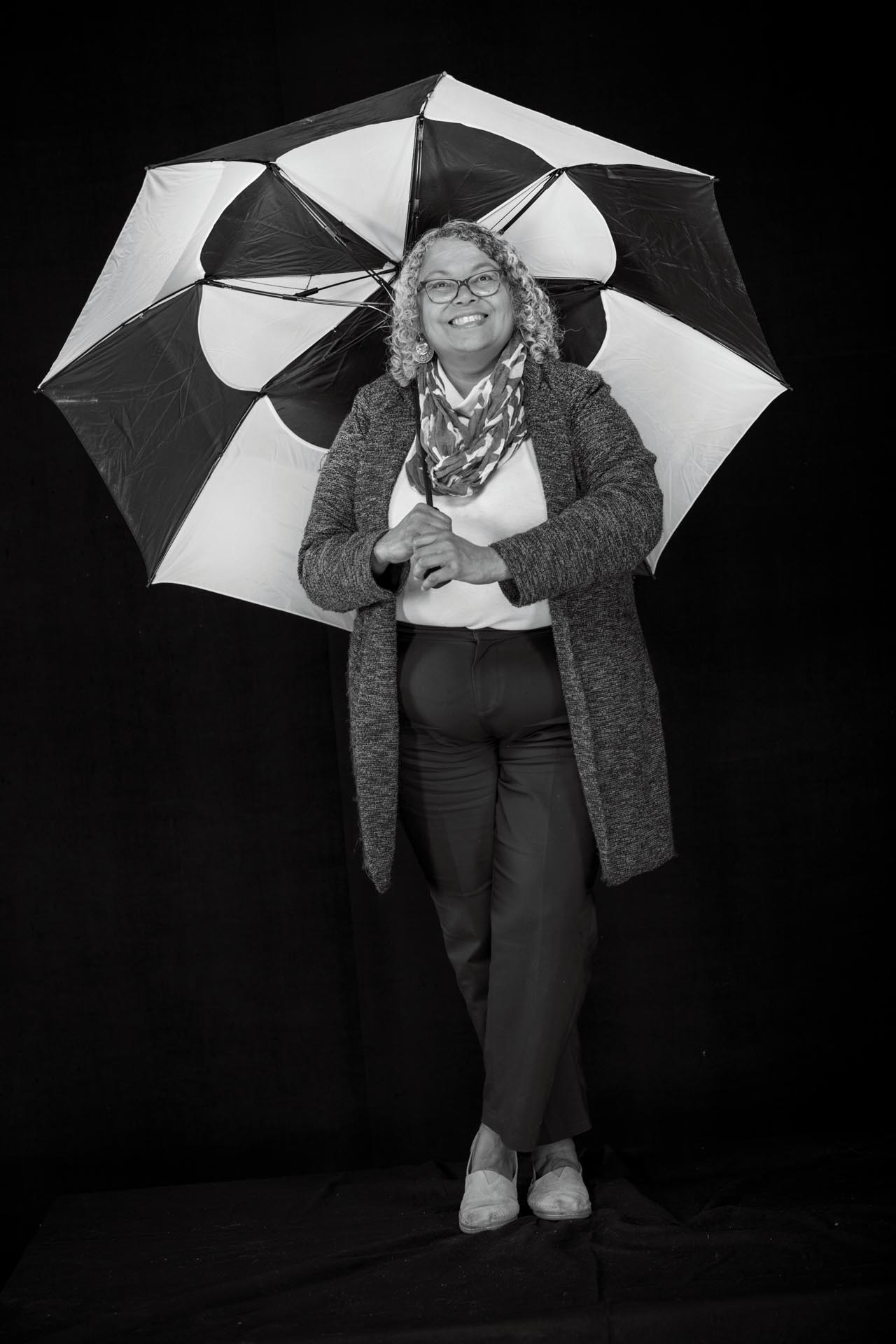By SUZANNE BARBOUR, Dean, The Graduate School
While Duke celebrates its 100th anniversary this year, The Graduate School is proud to celebrate its 98th, and we are preparing for our own centennial celebration in 2026. For nearly 100 years, we’ve been the protective “umbrella” that houses much of Duke’s graduate education. To extend that metaphor, TGS’s mission is to support students as they weather whatever storms may arise during their graduate school experience.
I’m overwhelmed to think of the sheer number of graduate students who have walked the grounds of this campus, or made scientific discoveries late at night in our laboratories, or discovered new truths about the human experience in written texts. As these scholars and leaders set out into the world and advance in their fields, their impact, and therefore Duke’s, becomes immeasurable. In the 21st century alone, more than 20,000 Duke graduate students have been awarded degrees.
Most of us have been part of the Duke community for only a small sliver of this long history, myself included. When I look back on The Graduate School’s past, I’m struck by how deeply embedded our current values are into the Duke tapestry woven with each passing year. There is an atmosphere of collegiality and compromise: The creation of a physical home for The Graduate School was delayed for many years in favor of building the Duke Chapel, which has now become a physical and metaphorical symbol of our institution’s strength and progress. There is evidence of gender equality in The Graduate School even early on: The first woman to receive a doctorate at Duke, Rose May Davis, earned her degree in chemistry just one year after the first Ph.D.s were conferred in The Graduate School. There is an underlying spirit of advocacy and activism: Before racial desegregation was made a reality on campuses across the country in the 1960s, Duke graduate students organized a poll and an overwhelming majority voted in favor of desegregating the university. And in our more recent history, there is a focus on mentorship at the heart of graduate education: The founding of the Dean’s Awards in 1998 and the University Center of Exemplary Mentoring in 2017 laid significant groundwork that reinforced our current focus on mentoring as a crucial element of the graduate student experience.
I often say that when you see one graduate school, you’ve seen just one. The Graduate School at Duke is no exception, and its uniqueness is what drew me here in 2022. I inherited a strong graduate school, built on the vision of extraordinary leaders such as my predecessor, Paula McClain, who was dean of The Graduate School from 2012 to 2022. I’ve taken on this mantle with care, creating the groundwork for what I hope will be an even stronger holistic model of graduate education. The needs of our students are constantly changing – and our model is changing too. Our graduate students have spoken, and their message is loud and clear: They desire to be stronger partners in creating their educational experience at Duke. To support our students, we need to think of their holistic needs – for professional development, equity and inclusion, and mentorship – not just their educational ones. The future of TGS is one that provides opportunities for graduate students to explore their interests in their own respective specialties, but also to engage with others across disciplines, to participate in meaningful professional and career development opportunities, to study in an environment that recognizes and values their identity and encourages equity for all people, to form connections and receive guidance through continued compassionate mentorship that is tailored to meet their individual needs, and to be given space and time to focus on personal wellness. Remember that protective umbrella? It is flexible, allowing us to accommodate the ever-changing needs of our students.
This is no small task, but the reward is well worth the effort. We owe it to the next generation of leaders who have entrusted Duke with their training. We owe it to the world that needs their innovative ideas. And, we hope, those who celebrate Duke’s second centennial will look back to see that The Graduate School produced not only some of the world’s brightest thinkers, but also its most creative problem-solvers, motivational mentors and social advocates.
It’s what the world needs, and The Graduate School is committed to being part of that story.
